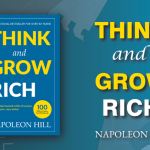In a world where technology constantly blurs the lines between reality and imagination, the concept of fictional travel has emerged as a fascinating phenomenon. Unlike conventional travel, which involves physically traversing landscapes, fictional travel takes us on a journey through the realms of imagination, literature, and virtual reality.
In this blog post, we will delve into the enchanting world of fictional travel, exploring its various forms, its impact on our minds, and the reasons why it continues to captivate the hearts of many.
Read: Amazon Ads for Authors: How Authors Can Promote Their Books Through Amazon Ads
Fictional travel, a captivating concept that transcends physical boundaries, has a rich history and a profound impact on human consciousness. This unique form of exploration takes individuals on a journey through the realms of imagination, whether in literature, virtual reality, or cinema.
In this exploration of the history and importance of fictional travel, we delve into its origins, evolution, and the significant role it plays in shaping our understanding of the world.
- Historical Roots
- Literary Exploration:
- The 20th Century and Beyond
- Virtual Reality and Technological Advancements
- Importance of Fictional Travel
- The Escapism of Literature
- Virtual Reality: A Technological Odyssey
- Cinematic Odyssey: From the Silver Screen to Alternate Realities
- The Psychological Impact
- The Allure of the Unknown
- Historical Roots:
The roots of fictional travel can be traced back to ancient mythology and folklore. Tales of gods and mythical creatures, epic adventures, and otherworldly realms served as a form of mental escapism for ancient cultures. These stories, often passed down through oral traditions, allowed individuals to traverse imaginative landscapes and grapple with fundamental questions about existence, morality, and the nature of the universe.
As societies evolved, so did the means of storytelling. The advent of written language gave rise to epic poems, such as Homer’s “The Odyssey” and Virgil’s “The Aeneid,” which took readers on fantastical journeys across uncharted territories. These early works laid the foundation for the concept of fictional travel, establishing the power of storytelling to transport minds beyond the confines of reality. - Literary Exploration:
The Renaissance marked a significant period in the history of fictional travel. The revival of interest in classical literature led to the creation of works that expanded the boundaries of imagination. Authors like Jonathan Swift with “Gulliver’s Travels” and Dante Alighieri with “The Divine Comedy” wove intricate tales that explored not only physical landscapes but also the depths of human experience and moral dilemmas.
During the Romantic era, writers like Mary Shelley, Edgar Allan Poe, and Jules Verne further pushed the boundaries of fictional travel. Shelley’s “Frankenstein” delved into the consequences of playing with the forces of life, while Verne’s “Twenty Thousand Leagues Under the Sea” took readers on a mesmerising underwater expedition, stimulating curiosity about unexplored realms. - The 20th Century and Beyond:
The 20th century witnessed a surge in fictional travel across various mediums. Science fiction, in particular, became a powerful vehicle for exploring futuristic landscapes and alternate realities. Authors like Isaac Asimov, Arthur C. Clarke, and Philip K. Dick envisioned worlds beyond the scope of contemporary understanding, challenging readers to contemplate the possibilities of the future.
The rise of cinema brought fictional travel to new heights. Blockbuster franchises like “Star Wars,” “The Matrix,” and “Avatar” transported audiences to galaxies far, far away, or simulated realities that defied the laws of physics. The visual spectacle of these films not only entertained but also expanded the collective imagination, influencing cultural perspectives and societal aspirations. - Virtual Reality and Technological Advancements:
In the 21st century, technological advancements have propelled fictional travel into the realm of virtual reality. The advent of VR has enabled individuals to step into immersive environments, blurring the lines between fiction and reality. Virtual tourism, educational simulations, and interactive storytelling have redefined the way people experience fictional travel, offering a level of engagement and presence previously unimaginable. - Importance of Fictional Travel:
Fictional travel serves a crucial role in human development and understanding. It provides a safe space for exploring complex emotions, moral quandaries, and societal issues. By immersing ourselves in imaginary worlds, we gain new perspectives, fostering empathy and cultural sensitivity.
Moreover, fictional travel stimulates creativity and innovation. The ability to envision fantastical landscapes and scenarios encourages individuals to think beyond the confines of the present, sparking ideas that can shape the future. It cultivates a sense of wonder, curiosity, and the belief that there is always more to discover. - The Escapism of Literature:
One of the earliest forms of fictional travel was through literature. Books have the magical ability to transport readers to far-off lands, distant time periods, and alternate realities. Whether it’s the whimsical landscapes of Wonderland in Lewis Carroll’s “Alice in Wonderland” or the hauntingly beautiful realms of Middle-earth in J.R.R. Tolkien’s “The Lord of the Rings,” literature allows us to escape the confines of our daily lives and immerse ourselves in fantastical worlds.
As we turn the pages, we become explorers, navigating uncharted territories and meeting characters that challenge our perceptions. The power of words takes us beyond the constraints of time and space, providing a passport to limitless adventures. From science fiction to fantasy, each genre opens a gateway to a unique form of fictional travel, inviting readers to embark on a journey of the mind. - Virtual Reality: A Technological Odyssey
In recent years, technological advancements have given rise to a new dimension of fictional travel: virtual reality (VR). VR allows individuals to step into alternate realities, experiencing sights, sounds, and sensations that feel remarkably real. Whether it’s exploring ancient civilizations, diving into the depths of the ocean, or soaring through the cosmos, virtual reality has the potential to redefine the way we perceive travel.
Virtual tourism is becoming increasingly popular, enabling people to visit destinations without leaving the comfort of their homes. The immersive nature of VR provides a sense of presence, blurring the boundaries between fiction and reality. As we don VR headsets, we can find ourselves wandering through the bustling streets of Tokyo one moment and standing on the surface of Mars the next. The allure lies in the ability to traverse landscapes that exist solely in the realm of imagination. - Cinematic Odyssey: From the Silver Screen to Alternate Realities
The silver screen has long been a vehicle for fictional travel. Through the lens of filmmakers, audiences are transported to worlds that captivate the senses. From the dreamlike landscapes of Studio Ghibli animations to the dystopian futures depicted in science fiction blockbusters, movies offer a visual feast that sparks the imagination.
Furthermore, the rise of augmented reality (AR) adds another layer to cinematic experiences. With AR, viewers can interact with fictional elements superimposed on their real-world surroundings. This merging of the tangible and the imaginary creates a unique form of travel, where the boundaries between fiction and reality become increasingly porous. - The Psychological Impact:
Fictional travel, in its various forms, has a profound impact on the human psyche. It serves as a form of escapism, allowing individuals to momentarily detach from the stresses of everyday life. Whether through the pages of a book, the immersive world of virtual reality, or the cinematic magic of the big screen, fictional travel offers a mental retreat.
Moreover, these journeys through the realms of imagination can ignite creativity and foster a sense of wonder. They challenge our perceptions, broaden our horizons, and cultivate empathy by introducing us to diverse cultures and perspectives. As we navigate these fictional landscapes, we often discover hidden facets of ourselves, unlocking new dimensions of thought and emotion. - The Allure of the Unknown:
What makes fictional travel so enticing is the allure of the unknown. Conventional travel often involves exploring physical spaces on Earth, but fictional travel allows us to venture into uncharted territories of the mind. The landscapes, cultures, and creatures encountered in the realms of imagination are limited only by the boundaries of creativity.
The thrill of discovering the unknown, whether in the pages of a book or the pixels of a virtual world, taps into a fundamental human desire for exploration. It satisfies our curiosity and fuels our imagination, reminding us that the possibilities are endless.
In a world where the boundaries between reality and fiction are becoming increasingly fluid, the allure of fictional travel continues to grow. Whether through the timeless pages of literature, the immersive experiences of virtual reality, or the cinematic wonders of the silver screen, individuals are drawn to explore the uncharted realms of imagination.
Fictional travel offers a unique form of escapism, a mental journey that transcends the limitations of time and space. It stimulates creativity, challenges perceptions, and provides a sanctuary for the mind to wander. As technology advances, the landscape of fictional travel will evolve, offering even more immersive and captivating experiences.
Read: List of Top 10 Most Successful Career Development Books of all Time.
So, whether you find yourself lost in the pages of a novel, donning a virtual reality headset, or captivated by the magic of cinema, embrace the enchanting world of fictional travel. In these imaginary journeys, we discover not only the power of human creativity but also the boundless landscapes of our own minds.
Publish your book with BlueRoseONE and become a bestselling author. Don’t let your dream of becoming an author fade away, grab the opportunity now and publish your book – be it fiction, non fiction, poetry or more.
















